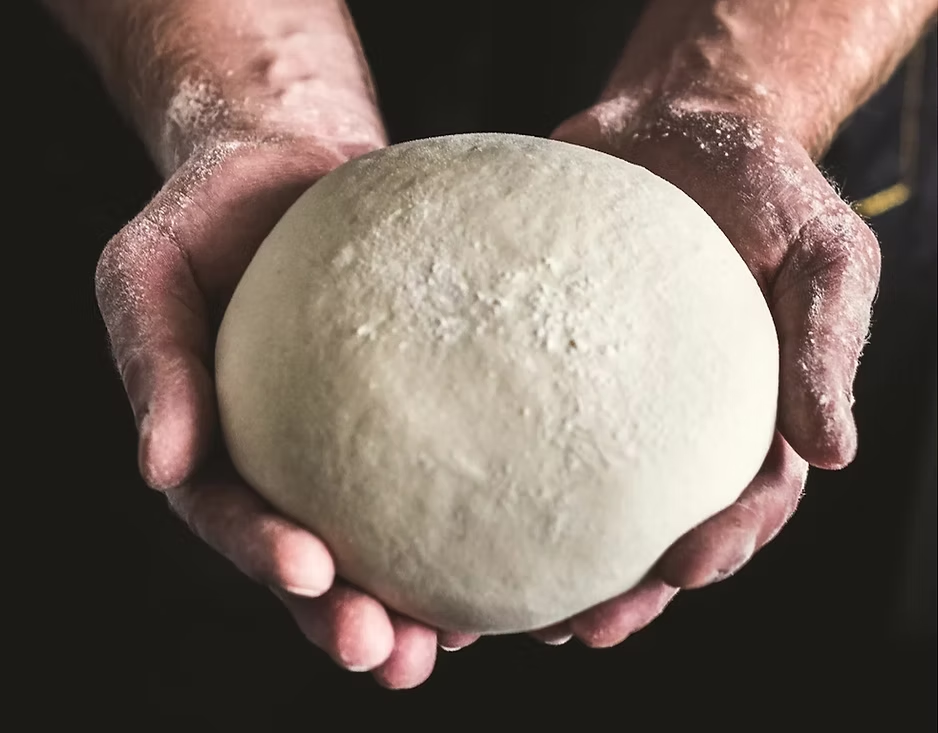Are you “STILL. HERE.”?
Through study and inquiry, we type a lot of data into our minds.
Through meditation, we hit the “enter” key.
Picking up where we left off in our last post, some of us have never consistently meditated, often because as Christians we have assumed meditation was the practice associated with some other religion. Even worse, some of us were told that to meditate meant to empty our minds which would inadvertently make room for the Devil to enter us. I think this why the word “hogwash” was invented.
The Holy Spirit doesn’t leave a child of God when we meditate, any more than all the clutter and noise and nonsense we pollute our minds with throughout the day can push him out. Meditation allows our minds to practice the art of focus, which by itself is already a needed skill for people who want to love others well. We could be focusing on nothing more than the flame of a candle, a star in the sky, or a single word or phrase and it would already be a helpful mental exercise. Now, make your focus Jesus and his teaching, and we are growing in more ways than one.
Have you ever noticed a disconnect within yourself between what you believe from Scripture to be true, and how you feel or how you act or how you genuinely relate to others based on that truth? For many of us, it is easier to know something intellectually than it is to really know the same truth intimately and experientially, in how we feel and how we live and how we relate to strangers, friends, and family. I’ve seen this during seasons of my life, when I am going through the motions but living like a functional atheist, ignoring God at every turn. This doesn’t happen on purpose, but as the result of spiritual drift, slowly and imperceptibly, until I notice something decidedly un-Christ-like in me and realize that I’ve been ignoring my best friend for far too long. When that happens, I realize that I need to invest in the flow of the living water of the Holy Spirit in my life before I become any more out of tune with the mind of Christ, the character of God, and the fruit of the Spirit. How sad that we should ever become comfortable in the rut of routine, studying Scripture without enough time given to allow the Lord who gave us Scripture to actually shape our souls.
Speaking about the Holy Spirit, Jesus said:
“Let anyone who is thirsty come to me and drink. Whoever believes in me, as Scripture has said, rivers of living water will flow from within them.”
~ Jesus (John 7:37-38)
For those of us who have trusted Christ, we have his promise of the Holy Spirit within. Jesus centred meditation can help us integrate God’s presence, heart, and fruit into every area of our lives.
For a Christ-follower, meditation has many potential benefits:
a. MENTAL: Meditation helps declutter our mind, strengthening our ability to focus on what’s most important in any given moment, and lessening our tendency to fall into distraction throughout our day. This will help us be open to the presence of God and the peace of Christ. Meditation can also help improve our experience of empathy, compassion, and self-control while reducing stress, worry, and most importantly anger, the emotion that the Bible most closely associates with judgment.
b. SPIRITUAL: For a Christ-follower, everything is, in a sense, spiritual. So the above “mental” benefits could be in the “spiritual” category as well. To this, we can add that the internal “decluttering” and slowing down of meditation can deepen our ability to hear the “gentle whisper” of God’s voice (1 Kings 19:12) among the cacophony of distracting voices in our heads and in our world. Hearing what Jesus is really saying is an ongoing theme in his teaching.
c. DISCIPLESHIP: Meditation will help us work with rather than against the Holy Spirit as he cultivates the fruit of the Spirit within us (Galatians 5:22-23). This happens as we allow our thoughts and feelings to be increasingly influenced by and partnered with the mind of Christ.
 Meditation is not the be-all-end-all of spiritual practice, but it is one very helpful and often neglected tool in our discipleship toolbelt to help us grow in the ongoing process of conformity to Christ.
Meditation is not the be-all-end-all of spiritual practice, but it is one very helpful and often neglected tool in our discipleship toolbelt to help us grow in the ongoing process of conformity to Christ.
That is my introduction. (I have a problem with brevity.) If you missed the last post, head back here to read it. If you’re ready to move on, here is a list of some “how to” tips to help you get started.
STILL. HERE. Meditation Tips:
- Decide on a consistent time, duration, place, and posture. Set aside a consistent time (usually first thing in the morning is best) each day and a consistent place. Sit comfortably, with your Bible close at hand. At times when you are meditating, you will be holding your Bible, while at other times you might want to rest your hands on your lap with your palms upward. This allows you to use your body to remind your mind that you are not trying to fight to achieve something, but are simply making space to be with and receive what God wants to give you. Set a timer for the amount of time you want to meditate (somewhere between 5-15 minutes should be good for beginners). Setting the alarm can help your mind let go of having to wonder how long you’ve been meditating. (If you’re looking for a peaceful sounding, meditation friendly timer, try the app “Insight Timer”.)
- Begin with prayer. Take a few deep breaths. In the Bible, breath or wind is a sign or symbol of the Holy Spirit (ruach in Hebrew, or pneuma in Greek). Breathing consciously (which we can do by taking control of our breathing for a few slow, deep breaths) can be a way of using our bodies to remind our souls of the presence of the God’s Spirit. We are reminding ourselves of the promise of Jesus, that through the Holy Spirit he will always be with us and we pray we might have ears to hear what he has to say to us. As you breathe slowly, ask Jesus to open your mind to his presence and share with him your anticipation and excitement to encounter him now. Whenever possible, pray out loud, even if you mumble or whisper. That too can help our minds focus.
- Read the Scripture passage for study. I’ve offered some suggestions near the end of this post. The passage should be short enough so that all your meditation time isn’t taken up with intellectual study. Sometimes we read broadly to intake lots of information for the purpose of topical study. That is a good thing, but a different thing than biblical meditation. At least at first, it could be helpful to lay down a foundation by focusing on the teaching of Jesus found in the gospels (again, see suggestions below). You can bite off a new verse or few to chew on each day or linger for a few days at a time on the same small passage. When it’s the first day on any new passage you may need to spend more of your time in study, processing the context, the background, and the meaning of different aspects, thoughts, or words of the passage. Do as much study as is necessary for you so that your analytical mind can be satisfied and at rest. As you sit with this same passage for numerous days, your study time can decrease and your meditation time increase.
- Now, take another few deep breaths and read through the Bible passage again. This time, read the words slowly, allowing yourself to stop and pause on any word or phrase that God seems to be highlighting for you. The Holy Spirit can use Scripture, not only to teach you truths about there and then, but about here and now, to show you realities you may be missing at this moment, about God and/or about you. If there is a phrase or word that stands out, pause there, focus there, wait there. Repeat the word or phrase that seems significant to you a few times. At first, you may want to whisper or mumble, remembering that being vocal in some way can help us focus. (This act of verbally repeating or muttering to yourself is the literal meaning of the original Hebrew word for meditation.)
- When your mind wanders, as it will and does with everyone, simply bring it back. Once you notice that your mind has wandered, simply return to your focus. That process of wandering and returning is part of the practice; it is part of what makes meditation good for you. Every time you notice your mind has wandered and you pull it back to your chosen word or words of Jesus, you are building up mental muscle. This regular practice of returning your thoughts to centre will help you focus on others and on the presence of Jesus throughout your day when you notice you have been distracted. So, don’t be discouraged if you have a meandering mind – it’s giving you lots of opportunities to exercise your focus muscles!
- Engage your imagination. We usually think of our imagination as something that helps us engage with fantasy (e.g., children sometimes have “imaginary” friends). That’s not what I mean here. Imagination can also help us tune in to, rather than away from, reality. There are many things we know to be true that are beyond our five senses, like the reality of God’s presence and love for us in any given moment. Move beyond the words of the text to imagining, sensing, and feeling what you believe to be true. Does the text record Jesus say “I am with you always” as he does at the close of Matthew’s gospel? Then take him at his word, trust that this is true, and simply focus on the fact that Jesus is with you at this moment. Sit with that. Feel its truth. Does the text say “Blessed are the peacemakers, for they will be called children of God”? Then envision yourself being an agent of peace in your day ahead. What might that look like in the first conversation you will have after meditating? What will you feel, knowing you are acting as God’s child, imitating the unconditional and lavish love of your heavenly Father?
- Move between thinking and praying if that is helpful. God is with you and happy to talk with you, or to simply be with you in a time of stillness and silence. We do not need to compartmentalize our spiritual practices but can flow freely between them.
- If you fall asleep, good. You needed it.
- If you get bored, no problem. Pushing through the boredom is part of learning any new skill.
- Remember the pressure is off. Don’t pressure yourself to manufacture a big revelation or mystical experience. Sometimes meditation can become emotional, especially when a realization of how much God loves us begins to sink in. Sometimes we might even go through a process of first being filled with an emotional rush of reverent awe (akin to “fear”) knowing that we are in the presence of the personal power that created the universe and who is now engaging directly with us. And then we might hear Jesus saying, “fear not”. We may wish to cry out “Holy, Holy, Holy!” to this God who is wholly other, wholly light, wholly love. But having said that, most of the time, meditation is simple, plain, and restful. Meditation is a quiet labour of love. We are training our mind to focus better on Jesus and his will for our lives. Meditation takes practice, and the practice itself is healthy.
- Close with another deep breath and a brief prayer of thanksgiving. Now, where did the time go?
- Process what you are experiencing and learning with others who are on the same journey. We need to learn from others – what helps them meditate well, and also what they are learning about Jesus and about themselves through it all. At The Meeting House, this happens in Home Church, and especially our Home Church Huddles.
In our “STILL. HERE.” series at The Meeting House we worked through three passages of the teaching of Jesus that could be helpful places to start, focusing on one per week. Now we are expanding our focus through our follow up series “STILL. HEAR.” to learn from the parables of Jesus. Beyond this, you might want to study and meditate your way through all of the Sermon on the Mount in Matthew 5-7 or the Sermon on the Plain in Luke 6:17-49 or all of the Lord’s last night teaching in John 14-17. Of course, you don’t need to stick to the “red letters” (the recorded words of Jesus) for Jesus-centred meditation, since we can hear from Jesus throughout all of Scripture, but for those of us who are new to Jesus-centred meditation, the direct teaching of Jesus seems like a good place to start.
I’d love to hear from you. What has been your experience of meditation in the past? What about now? What has been helpful for you in this spiritual practice? What lingering questions are you still left with? I’m looking forward to learning together.
Peace,




